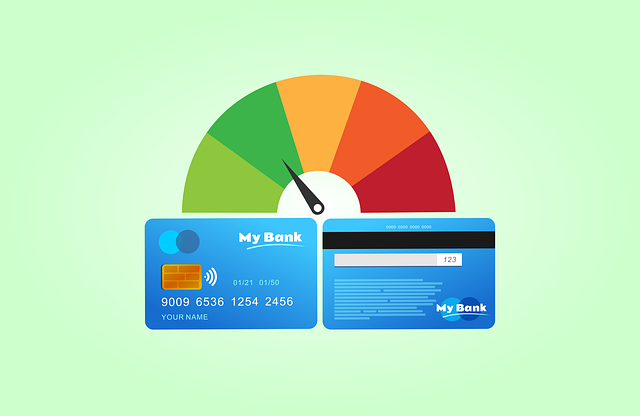What is Alternative Business Financing?
Alternative business financing refers to funding options for businesses outside traditional bank loans. Non-bank lenders, such as online lenders, peer-to-peer lending platforms, and crowdfunding websites, typically offer these alternative financing options. These lenders provide access to capital for businesses that may not qualify for a bank loan due to factors like limited credit history, short time in business, or unconventional business models.
Alternative business lenders differ from banks in several ways. Firstly, the application process for alternative business lending is often quicker and more streamlined than traditional bank loans. Additionally, alternative lenders may be more willing to take on higher-risk borrowers, offering loans with higher interest rates or shorter repayment terms.
These lenders also tend to be more flexible in the types of collateral they accept and the criteria they use to evaluate a business’s creditworthiness. Overall, alternative business financing provides a valuable option for companies looking for capital outside the traditional banking system.
Alternative Business Financing Pros & Cons
Pros:
- Quick access to funds.
- Flexible terms and repayment options.
- Can be easier to qualify for compared to traditional bank loans.
- Can help businesses with poor credit history.
- Can provide funding for specific projects or needs.
Cons:
- Higher interest rates compared to traditional loans.
- Limited funding amounts available.
- Some alternative lenders may have less regulation and transparency.
- Potential for predatory lending practices.
- Can be riskier for both the lender and the borrower.
What are Business Loans from a Bank?
Business loans from a bank are traditional forms of financing that provide funds to businesses for various purposes. Banks offer small business loans and business acquisition loans, among others, to help businesses grow and thrive. These loans typically have specific terms and conditions, including interest rates and repayment schedules.
Banks act as lenders in these transactions, assessing businesses’ creditworthiness before approving a loan. They consider factors such as the business’s revenue, credit history, and overall financial health. Once approved, companies can use the loan amount to expand operations, purchase equipment, or manage cash flow.
Banks often require collateral to secure business loans. This could be assets like property or equipment that the bank can claim if the business fails to repay the loan. Banks may charge fees such as origination or processing fees for providing these loans.
Business Bank Loans Pros & Cons
Pros:
- Lower interest rates compared to other types of loans.
- Longer repayment terms available with traditional lenders.
- An established relationship with the bank can lead to better loan terms.
- Can help build business credit history.
- Access to more significant loan amounts.
Cons:
- Strict eligibility criteria.
- Lengthy application process.
- Collateral may be required.
- Risk of losing collateral if unable to repay the loan.
- Limited flexibility in terms of repayment schedules.
What are the differences between Alternative Business Financing vs Bank Loans?
Here are some of the crucial differences between alternative business financing vs bank loans.
Qualifications
Alternative business financing options often have much less stringent qualification requirements than traditional bank loans. These alternative options may be more accessible to businesses with limited credit history or collateral. Most have a low minimum credit score requirement.
On the other hand, bank loans typically require a more extensive application process and higher credit score. Ultimately, the choice between alternative financing and bank loans depends on the specific needs and qualifications of the business seeking funding.
Loan Amounts
Banks typically offer larger loan amounts than alternative lenders, making them suitable for businesses or individuals with substantial financing needs. Alternative lenders may offer smaller loan amounts but more flexible terms and faster approval processes. The decision between banks and alternative lenders ultimately depends on the borrower’s specific financial situation and requirements.
Costs
Alternative lenders typically have higher interest rates and fees than traditional banks. This is often the tradeoff for faster funding times and more lenient qualifications. The extra cost helps offset the increased risk online lenders take.
Traditional business loans from a bank usually have more competitive rates, but the rates depend on your creditworthiness. Borrowers with fair or good credit might get higher interest rates or even be denied.
Terms
Many alternative business loans are short-term or medium-term, meaning the repayment period is anywhere from six months to five years. However, some alternative lenders offer long-term loans of up to ten years. In addition, SBA loans through alternative lenders provide terms of 10-25 years.
Banks typically offer long-term business loans but may also have short-term options. While a long-term loan lowers your monthly payment, it also means you could potentially pay more total interest over the life of the loan.
Funding Speeds
One of the primary advantages of alternative lending is that it provides much faster funding. Online and non-bank lenders use fintech tools to speed up the approval process and transfer funds electronically. Depending on the loan type and the borrower’s qualifications, some alternative lenders approve and fund loans within 24 hours of applying.
Banks usually have a much slower funding time. Loan approval can take several business days or even a few weeks in some cases. Once approved, banks also typically have a slower disbursement time than alternative lending.
What are some examples of Alternative Business Funding?
Here are some of the leading types of alternative business funding.
Small Business Loans
Small business loans refer to various types of loans designed to meet the needs of small businesses. Alternative and online lenders provide these loans, offering quick access to funds for multiple purposes like expansion or operational expenses.
Examples of small business lines available through UCS’s network of lenders include:
Business Term Loans: A type of financing that provides a lump sum disbursement, repaid over a predetermined period, typically with fixed monthly payments. Small businesses commonly use these loans to fund significant investments, such as equipment purchases or expansion projects.
Equipment Financing: Equipment financing is a type of small business loan specifically used to purchase equipment or machinery. It allows businesses to acquire necessary assets without having to pay the total cost upfront, making it easier to manage cash flow.
Business Lines of Credit: A business line of credit is a flexible financing option that allows a company to borrow funds up to a predetermined credit limit, repay, and borrow again as needed. It provides access to capital for short-term expenses, working capital needs, and unexpected costs, offering businesses financial flexibility and control.
SBA Loans: SBA loans are government-backed loans that help small businesses access affordable financing. They offer favorable terms and lower interest rates than traditional loans, making them an attractive option for small business owners.
Invoice Factoring
Invoice factoring is a financial transaction where a company sells its accounts receivable to a third party at a discount. The company receives immediate cash flow rather than waiting for customers to pay their invoices. The factoring company then collects the total amount owed from the customers.
Merchant Cash Advance
Merchant cash advances are a form of financing where a business receives a lump sum payment in exchange for a percentage of future credit card sales. This type of funding is often used by small businesses that need quick access to capital but may have difficulty qualifying for traditional loans. Repayments are made daily or weekly through a fixed percentage of the business’s daily credit card sales.
Crowdfunding
Crowdfunding can be a valuable tool for small businesses seeking financing. By leveraging the power of a large group of individuals, small businesses can raise capital without relying solely on traditional sources like banks or investors. Crowdfunding platforms allow entrepreneurs to showcase their ideas and products to a wide audience, potentially attracting the funding needed to launch or grow their businesses.
Peer-to-Peer Lending
Peer-to-peer lending is a form of alternative financing in which individuals lend money directly to businesses without involving traditional financial institutions like banks. This method allows businesses to access funding quickly and often at competitive interest rates, making it an attractive option for entrepreneurs looking to grow their ventures.
Grants
Small business funding through grants can be a valuable resource for entrepreneurs looking to start or grow their businesses. Grants provide non-repayable funds to help cover expenses such as equipment, marketing, or research and development. It’s vital for small business owners to research and apply for grants that align with their business goals and objectives.
How can my Business decide between Alternative Funding & Bank Loans?
Here are some crucial considerations when deciding between alternative business funding and bank loans.
Interest rates: Consider the interest rates offered by alternative funding sources compared to traditional bank loans. Compare rates with your budget to see what you can afford.
Repayment terms: Evaluate the repayment terms and flexibility offered by alternative funding and bank loans. Long-term loans often have a lower monthly payment, but short-term loans accumulate less debt.
Speed of funding: Determine how quickly you need the funds and compare the speed of funding between alternative options and bank loans. Alternative funders are typically your best options when you have immediate funding needs.
Credit requirements: Assess the credit requirements for alternative funding and bank loans to see which option suits your business’s financial situation. Younger businesses or those with limited credit histories or bad credit should consider alternative lending over banks.
Collateral: Consider whether you are willing to provide collateral for a bank loan or prefer alternative funding options that may not require collateral. Getting an unsecured loan (no collateral) from an alternative lender is typically more accessible, but you might have to sign a personal guarantee.
Frequently Asked Questions
Here are the most common questions about alternative business financing vs bank loans.
Are all Alternative Business Funding options loans?
Alternative business financing encompasses various options beyond loans. While some alternative loans are structured like typical loans, others differ significantly. For instance, merchant cash advances and invoice financing are forms of alternative funding that don’t involve taking on debt.
What’s the most accessible Alternative Business Funding option?
Merchant cash advances (MCAs) are the most accessible alternative business funding options due to their simplicity and flexibility. These advances are not loans but involve selling a portion of future sales at a discount to receive immediate funds.
MCAs appeal to businesses with low credit scores or limited collateral because approval is primarily based on sales history. The eligibility criteria for these advances are typically less stringent than traditional bank loans, making them more accessible to a broader range of businesses.
One significant advantage of merchant cash advances is the quick access to funds, usually within a few days, compared to the lengthy approval process associated with bank loans. Moreover, repayment is directly tied to daily sales, easing the financial burden on businesses during slower periods.
Do some industries benefit more from Alternative Business Financing than Bank Loans?
Industries such as retail, restaurants, technology startups, and seasonal businesses often find alternative business financing more suitable due to its flexibility and quick access to funds. It caters well to businesses with fluctuating cash flows or unconventional financing needs.
Can a business use Alternative Business Funding and Bank Loans simultaneously?
Yes, businesses can leverage both alternative business funding and bank loans concurrently to meet different financial needs. By diversifying sources of capital, companies can access a mix of funding options tailored to specific projects or growth initiatives.
Why are Bank Loans harder to get than Alternative Business Loans?
Bank loans are often more challenging to obtain than alternative business financing due to stricter eligibility criteria. Banks typically require excellent credit scores and a solid financial history, making it difficult for many small businesses to qualify.
Moreover, the application process for bank loans is usually more lengthy and complex, involving extensive paperwork and documentation. On the other hand, alternative lenders offer a more streamlined process with quick approval and funding, which can be crucial for businesses needing immediate capital.
Another factor that makes bank loans less accessible is traditional banks’ higher risk aversion. They tend to be more cautious in lending to small businesses, especially during economic downturns or uncertain times. In contrast, alternative lenders may be more willing to take on some level of risk in exchange for higher interest rates.
Are Bank Loans or Alternative Business Loans better for Bad Credit?
Business owners with bad credit often struggle to qualify for traditional business financing from a bank or credit union. However, alternative lenders can specialize in bad credit business loans.
These loans are designed to provide financing options for business owners with less-than-perfect credit scores. Bad credit business loans typically have higher interest rates and fees than traditional bank loans, but they offer a more accessible option for those who may not qualify for traditional financing.
Alternative Business Financing vs Bank Loans – Final Thoughts
While bank loans offer traditional financing options, alternative business financing provides flexibility and accessibility for small businesses. Entrepreneurs should weigh the pros and cons of each option carefully before deciding on the best fit for their financial needs.
By exploring alternative financing sources, businesses can find creative solutions to fund their growth and achieve success. Ultimately, the key is to choose the financing option that aligns best with the business’s goals and long-term strategy.
Contact us if you have more questions about alternative business financing vs bank loans or to apply for a small business loan. Our alternative funding experts can help you find the best business financing option for your needs.






















